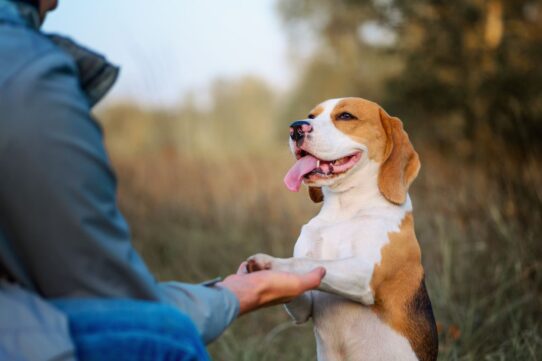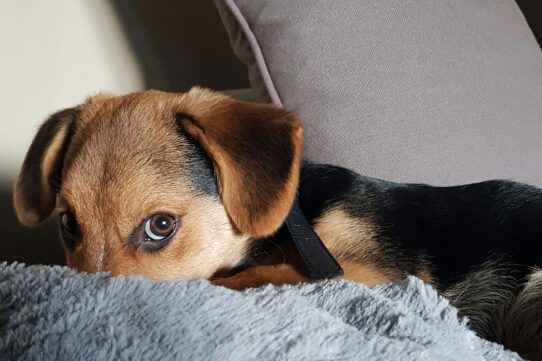Puppies are so much fun and can bring so much joy to your life. But before you get your new furry friend home, there are some things you need to do to prepare. It is paramount to set up some scheduled routines for your puppy.
Puppies require plenty of care and attention. They must be fed, played with, and taken out to potty regularly. Plus, While a puppy’s energy and playful nature may make it seem like they can go all day without a break, it’s important to remember that they are still learning about the world and need time to rest and digest.
If you don’t have a regular routine for your puppy, it can easily become overwhelmed and stressed. This can lead to a variety of pet behavioral problems down the road, which is why it’s so important to set up a regular routine for your puppy from the very beginning.
Doing so will help your puppy feel comfortable and secure in their new home and prevent any potential problems from developing. Continue reading to learn more.
What Should You Include in a Pup’s Routine?

A pup’s routine is important for its overall health and well-being. A routine helps to keep them on a regular schedule, which can make things run more smoothly for both you and your pup. A typical pup routine might include the following:
- Feeding Schedule. It’s important to come up with a personalized and regular feeding schedule for your pup. This will help them know when to expect their next meal and help regulate their digestive system. Feed them at the same time daily and provide them with fresh, clean water at all times. Keep in mind the size of the meals when constructing a feeding schedule.
- Potty Breaks. Puppies need to go potty often. Schedule regular potty breaks throughout the day and take them to the same spot each time. Get your pup and take them out every few hours or after they eat or drink. Reward them with a nice treat after they go to reinforce good behavior. This is especially important when crate training younger dogs.
- Walks and Playtime. Puppies will likely need plenty of exercise to stay healthy and happy. Playtime is important, so make sure to include some time each day for fetch or tug-of-war. Take them on walks around the area or to the park to explore as well. The exposure can help them when it comes to being out and around other dogs and people.
- Bedtime and Naps. Sleep is important for a puppy’s growth and development. Puppies need plenty of rest, so it’s important to establish a regular bedtime routine. Naps during the day are also a good idea to help them recharge, especially after more exhausting activities that can truly test their energy levels.
How Should You Introduce Routines to Your Pup?
It’s best to take things slow and research how to best introduce different routines to your puppy based on their age. Here are a couple of paw parent suggestions to keep in mind:
- Newborn Puppy. Start slowly in terms of introducing new routines. This is because they are still adjusting to life outside of the womb and need time to adapt. Therefore, it’s ideal to stick to simple routines such as feeding, sleeping, and playing. As they get a little older, start to introduce more complex routines such as toilet training and obedience training.
- Pre-Adolescent Puppy. For a pre-adolescent puppy, it is important to continue working on the basic routines that you established when they were younger. At this age, puppies are starting to become more independent, so it is important to make sure that they are still comfortable with being left alone for short periods of time.
- Teenage Puppy. For a teenage puppy, it is important to continue working on the routines that you have established and to start teaching them basic obedience commands. This is the time when puppies really begin to test boundaries, so a pattern can help keep them on track. This is also a fantastic time to start enrolling them in dog training classes.
- Full-Adolescent Puppy. Continue integrating more complex routines such as toilet training and obedience training. This is because they are now fully grown and need to learn how to behave. However, it is still important to allow them time to adjust and not overload them with too many new routines all at once.
What Are the Key Aspects to Focus on in a Routine?

As implied above, a routine should be age-appropriate. Make sure that your activities and expectations for your puppy are realistic and achievable for their age and stage of development. Plus, as your puppy grows and changes, so should the routine. Be prepared to adjust the routine as needed to accommodate your puppy’s needs.
It is quite important to be consistent with the routine to help the puppy learn and remember what is expected of them too. Try your best to establish a regular schedule for the training so that the puppy knows when to expect certain activities to occur. Repeating the actions can also be helpful, and you can give a reward when your pet remembers.
What Else Should You Consider When Training?
In addition to a routine, there are a few other things to keep in mind when training your puppy. For example, socialization is an important part of training. This means exposing your puppy to different people, animals, and environments in a positive way so that they learn to be comfortable and confident in a variety of situations.
It is also important to use positive reinforcement when training your puppy. This means rewarding your puppy for its good behavior instead of punishing them for bad behavior. Dogs respond better to positive reinforcement, and it can help to build a trusting relationship between you and your pet.
Conclusion
Try your best to be patient when developing different routines for your pup. They are still learning, and it will take time for them to learn everything you want them to know. Be consistent with your expectations and rewards; eventually, your puppy will catch on.
Looking for puppies for sale near Louisville, KY? Puppygram was created to make the purchase of a healthy puppy simple and easy, employing knowledgeable staff that will assist you in picking your perfect companion. Get in touch with us today!




